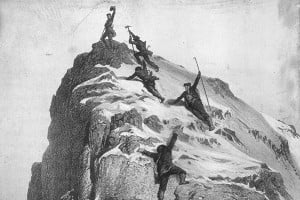
Gwen Moffat pens a tribute to the Northern Pennines and winters past, following the new digital release of her crime novel The Corpse Road...
One time in the sixties I skied over a car. I wouldn't have known but coming back on a different line I saw my outward tracks and a metallic gleam in the drift. I cleared some snow from a window but the occupants must have reached the safety of the hotel which, in fact, had been my destination. Outward Bound, Ullswater, was cut off, and all the lakeside villages. Drifts topped the walls, it was cold enough to freeze the lake, someone drove a car across the ice above Pooley Bridge, and I skied to Brackenrigg to pick up the school's meat delivery.
After Ullswater I went to live in an old farmhouse under Stainmore. When the east wind blew, and before the snow came, at night I could hear the lorries grinding up A66 to Bowes Moor and when they stopped I knew the road was blocked. My sunken lane was impassable for weeks (I left the van in the village and skied out). I always had stocks of food and fuel, in fact it was I who fed the cattle if the bailiff couldn't get down, but warm and dry, well-fed, with a book to write, a radio, and cats and cows for company, despite the security I still knew the atavistic thrill of dusk creeping in at three in the afternoon, when there was a raw smell on cold air and a blanket of silence as I strained for the first sign, the first rustle of dead leaves and a sense rather than sound of the helm coming, high in the rocks above Helbeck Wood.
This was my first experience of that tremendous wind that came surging up the long eastern slope of the Pennines to meet the warm air of the Eden valley and create a turbulence of powder blizzards that could last for days. And when it stopped drifts might reach the house eaves, roofs collapsed, sheep were buried; one night two shepherds died. I was a mountaineer, I had researched disasters in the hills; I holed up when the helm wind blew but when it was fine I roamed the county (chains on the van, a shovel and survival gear in the back, a sleeping bag, iron rations). I quartered the Lakes, the Valley, the fells, negotiating the frozen groughs of Mickle Fell and the pikes, tracing the route from High Force to High Cup Nick. It's called research. I gloried in it. I attended parish council meetings, curious local rites - surely pagan in origin (after all, Cross Fell by right is Fiends' Fell); I was entertained lavishly in farm kitchens, pubs, drawing rooms, a pele tower. Occasionally my journey home would be vastly lengthened when one pass was blocked and I must find another. More than once I gave up, stopped by a drift, slept in the back and dug myself out in the morning.
Back home, safe and warm, in the long nights (hearing the cattle moving in the barn on the other side of the kitchen wall) I wrote my book on the East Fellside, knowing what it was like to lose one of my nine lives in a blizzard, knowing the high country and all the little villages at the foot of the fells, knowing the people, being part of it. And there I placed my people: a cult seeking enlightenment through subsistence farming, an investigative reporter, two London cops, and a girl with violet eyes drowned in the Pool of London, a girl who asked too many questions in a castle below a great glen not a world away from High Cup Nick. And there was the helm.
In my book and for the London cops the first indication of something alien was unexpected. They had paused on the snowy village green and heard "an unfamiliar sound; a soft rushing noise like a wind in summer foliage. There was nothing to be seen: only the stolid stone houses, the church, and smoke rising from the odd chimney. The object seemed to approach slowly, yet the rushing had a quality of peculiar urgency. They didn't look at each other but stared in amazement and some trepidation at the place which they could now identify as the site of the noise, or rather the sites, because it moved. Then about fifty feet away, a spurt of powder snow rose some six feet in the air, spiralling fast, and went slowly past them, but twisting furiously so that its movement was curiously two-dimensional. At short range it made an odd fluttering sound like a stone which has fallen a long way. They watched the whirling white devil until it vanished through the bottom gangway."
'Would that be a miniature whirlwind?' Page asked
'I hope so. I wouldn't like to think it was anything else.'
We don't have winters like that any more but sometimes when the east wind blows and the white cloud lies along the high plateau of Cross Fell I remember how it felt half a century ago when it grew dark at three, the air smelled of snow and you waited, listening for the first whisper of the helm.
*The Corpse Road was published by Endeavour on December 21st. Enjoy it on your Kindle on Boxing Day preferably snowbound and at home.

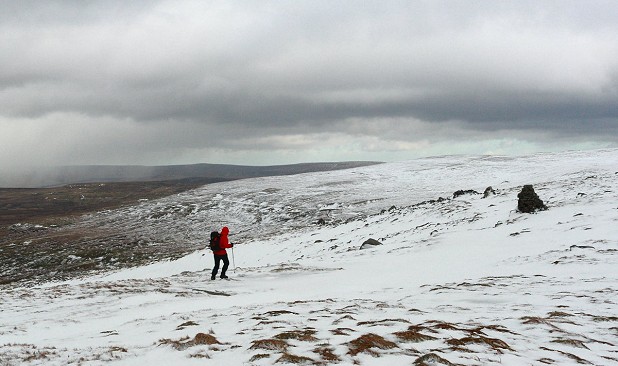
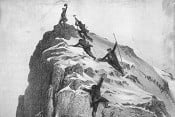
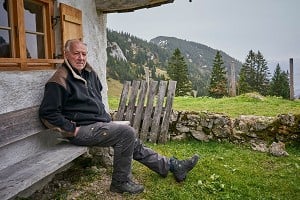
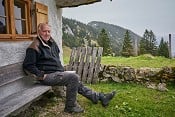
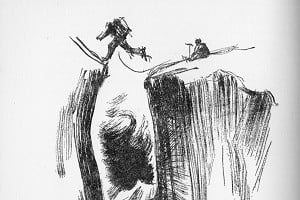
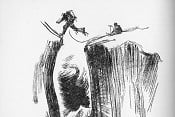


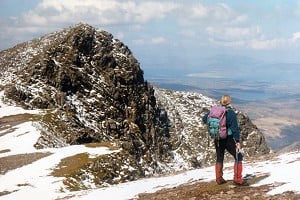
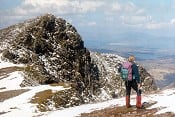
Comments
Probably '63? But my parents always maintained '47 was worse.
https://www.netweather.tv/weather-forecasts/uk/winter/famous-winters
A lovely winter's tale.
The attractions of the northern Pennines aren't as obvious as those of the Lakeland fells but there's certainly something about their overwhelming bleakness.
I've read and enjoyed Gwen's autobiography but not read any of her fiction. I may have to resort to Kindle for the first time.
Thanks for this. UKC at its best!
Yes what a marvellous seasonal read, wish there was a blizzard blowing right now so I could curl up with it! What a fascinating character Gwen Moffat is - I too have never read any of her fiction, what a treat in store this evening with a glass of Ardmore!
Dorine